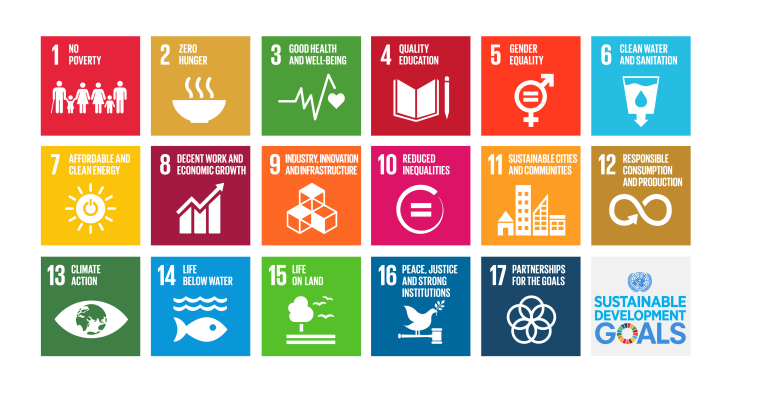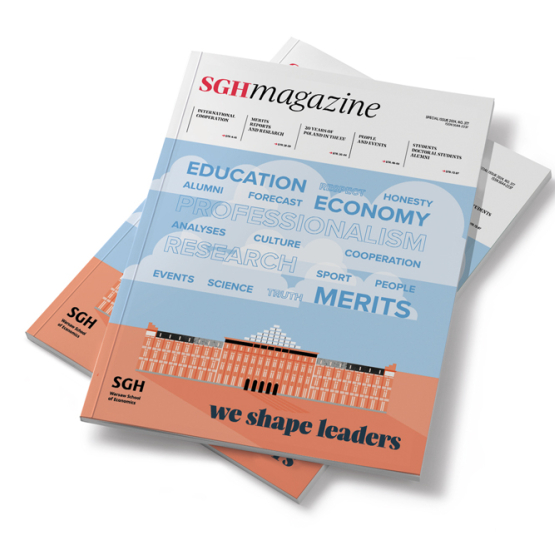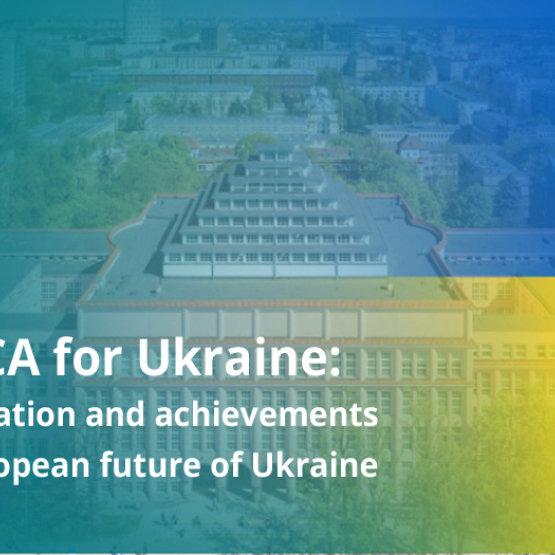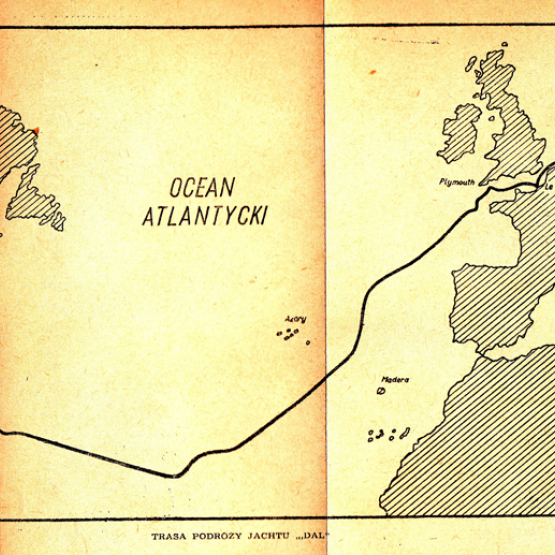
For a modern university the realization of a social mission is an obligation. It is an obligation resulting not only directly from the challenges of today's world, but also stemming from the timeless ethos of a university as one that is able and capable of shaping the minds of young people.
For a modern university the realization of a social mission is an obligation. It is an obligation resulting not only directly from the challenges of today's world, but also stemming from the timeless ethos of a university as one that is able and capable of shaping the minds of young people. And what is most important - it is not only about beautiful declarations and membership in the highly recognised international organisations and associations. The most important are real actions. For the good of other people and natural environment in which we live. The environment - which is a gift for the whole mankind and for every single human being as well.
SGH Warsaw School of Economics (SGH) heard the call for strong activity in the area of social responsibility several years ago. Thus, following the example of both foreign and other domestic universities, we have embarked on a wide range of activities aimed at making our school not only an important academic centre: a place where highly qualified staff teach and where scientific research is carried out, but also at fulfilling a timeless mission. The framework of this mission is determined by the notions of sustainable development and social responsibility defined by the UN's global sustainable development goals (UN SDGs) . What is important is that the current Rector of Warsaw School of Economics SGH, Prof. Piotr Wachowiak, attaches great importance to proper education (apart from "ordinary" education, i.e. teaching at the academic level) of students and more broadly to fulfilling the „Mission” by SGH. And this is precisely because we would like our current students and future graduates alike (managers, businessmen, politicians - in a word „decision makers” at various levels and in various fields) not to forget about respect for other people and for the natural environment. These assumptions have not only been strongly emphasized by the Rector since the beginning of his term in 2020, but they also constitute a strong and distinct point of the „SGH Social Responsibility Strategy” (Strategia Odpowiedzialności Społecznej Uczelni, hereafter SOU) adopted very recently, at the end of May 2021. The body which is specially appointed to practically support the Rector of SGH in the implementation of these noble values is the Rector's Commission for Social Responsibility headed by Professor Halina Brdulak.
For the sake of argument, let us say that this Strategy refers to the guidelines of the „University's Development Strategy for 2022 – 2032” adopted by the SGH Senate Resolution No. 87 of 28 April 2021. The SGH Development Strategy includes the following strategic areas: "Science", "Didactics", "Relations with the Environment" and "University Management". SOU bases the social and environmental mission of the University on three main strategic objectives. Each of these is broken down into specific operational goals. Thus, "Strategic Objective 1" (which includes 6 specific operational objectives) is "to maintain dialogue with stakeholders and increase their involvement". The second one focuses on the need to increase the University's contribution to sustainable development. Here it is worth highlighting a completely new aspect that has not been implemented more widely so far, namely: "environmental management in the University's activities". It is also decided to include in education (faculties, paths, particular courses and subjects realized at SGH) the topics of contemporary social and environmental challenges. Strategic goal number 3 is "Providing education and scientific research oriented towards the needs of an open economy - both in terms of the organization of teaching and scientific activities, as well as in terms of the curriculum". In the document, the SGH Warsaw School of Economics authorities have declared their support for research and publications, as well as for shaping and supporting attitudes related to social responsibility, sustainable development and environmental protection in the SGH scientific community (along with raising awareness of the need to include these issues in scientific works). Supporting various forms of participation of students, PhD students and representatives of the community in the life of SGH through creating a program that allows combining voluntary/charitable initiatives undertaken by SGH with the needs of the stakeholders.
SOU is comprehensive and - as any document of this type - sets directions, outlines routes and formulates a vision. By its nature it is therefore general. There is no point in discussing it in detail, because the most important thing is how its assumptions will translate into concrete actions and initiatives. Will the beautiful goals remain on paper in practice or will they result, for example, in reducing the use of plastic or other resources in the daily functioning of the university as a working and learning environment for several thousand people? And will the curricula really include, in proper proportion to the rest of the taught contents, those related to human responsibility for the community and for the natural environment? We hope they will. The fulfilment of these obligations will be monitored by specific measures, for example, the number of projects on social responsibility and sustainable development implemented by the University).
We believe that our School is truly on track to deliver on the promises made in the SOU. Why? Because even without such an important formal basis as the Strategy, the University has been involved in pro-social and pro-ecological activities for years. By the way, it is worth saying that we are not alone among other Polish Higher Education Institutions (HEI). Our domestic universities really have something to boast about. Year by year, the number of bottom-up projects and actions initiated by academic authorities is growing. There are various new organizations (often of "student-professor" character, i.e. integrating young people with their lecturers and mentors), and initiatives such as conferences, workshops, fairs, sharing platforms, etc are really blossoming. They are carried out at individual Polish HEIs, but the cooperation and exchange of information takes place also on a national forum (Declaration of Social Responsibility signed by 83 HEIs). In many universities, new faculties are also emerging, where Corporate Social Responsibility (CSR) and all human organizations, the sustainability principle, sensitivity to others, as well as the obligation to care for broadly understood environment, especially the protection of natural environment - which is a gift for all mankind and for every man - are the axis of didactic and factual transfer.
But let's go back to SGH. In 2019 SGH Warsaw School of Economics celebrated its tenth anniversary of PRME membership. The author of this article (prof. Agnieszka Domańska) is the president of Steering Commitee of PRME Polish Chapter – responsible for managing and coordinating the PRME activities in all-Poland perspective. However, SGH has been realizing numerous projects and activities in the field of social and ecological responsibility and in the scope of sustainability not only because it is proud to be the part of global PRME family. We do it as we feel it is our moral obligation of today, but also strong duty for the future generations we teach and mentally shape. Taking the wider all-Poland perspective, the coordinator of the inter-university working group for social responsibility of Polish universities since 2020 is the Rector of SGH Piotr Wachowiak, PhD, Professor of SGH.
7 November 2020 SGH, as the first Polish university, became a member of the Sustainable Development Goals Accord - an agreement between the international academic and scientific community established to implement the Sustainable Development Goals. This initiative was undertaken due to the key role of science and education in the implementation of the seventeen Sustainable Development Goals set by the UN for the period 2015-2030. The SDG Accord is a mutual commitment by Accord participants to implement and report on sustainable development activities and to share best practices in this area. The Sustainable Development Goals Accord, of which SGH has become a partner, is an agreement between the academic and scientific community, initiated by the British Environmental Association for Universities and Colleges and the Australasian Campuses Towards Sustainability. So far, the SDG Accord has been signed by 92 teaching and research institutions from 6 continents. In addition to the SGH Warsaw School of Economics, members of the agreement include: Boston University, Business School Lausanne, Kedge Business School, Kyoto University, University of Copenhagen, University of Edinburgh, University of Manchester, as well as our School's partner universities - Aalto University in Finland and University of Otago in New Zealand.
In March 2020 SGH Warsaw School of Economics joined the group of signatories of the Diversity Charter. This is an international initiative to promote diversity and equal opportunity in employment, regardless of gender, race, sexual orientation, ethnicity, age, disability or religious belief. Another step was participatory development and adoption of the Code of Ethics for employees of the Warsaw School of Economics (2018)
So much for the formal side and membership in organizations. Perhaps the most important thing is whether the official declarations and participation in the international organizations and associations translate into real action. In this field we already have something to boast of! Among SGH Warsaw School of Economics' activities in the area of social responsibility and sustainability there can be mentioned:
- Establishment of the University of the Third Age (2006), Economic Children's University (2008), Entrepreneurship Olympiad (2005/2006)
- Launching an employee budget (from 2017) and a student-doctoral participatory budget (from 2020)
- conducting intercollegiate rectoral grants dedicated to SOU (since 2017)
Participatory budgeting projects are the most interesting to talk about. This is what it is all about: reality and practice in action. Actual, tangible actions. Indeed, as part of the participatory budget, a number of initiatives in the area of ecology and sustainable development have been successfully implemented. But what is a participatory budget? It is a mechanism of co-management (participatory management) that involves a wide range of stakeholders in deciding on the allocation of a specific part of the budget of an institution or organization. It is also worth noting that the employee budget (i.e. including academics and administration) has been in place since 2017. Thus, we have already had its five editions. However, since last year, the second one - student and doctoral (two editions) - has been functioning along with it. Simply because - each of these groups has different needs, expectations and ideas about what changes would be useful.
How does it work? Every year, the Rector of SGH invites you to submit ideas for projects that will help the entire community and its surroundings to function in harmony with nature and social well-being. The ideas submitted by employees are mainly related to actions for improving working conditions and professional development, as well as improving campus infrastructure. The student-doctoral budget, on the other hand, is run under the banner of ecological innovation. Over the years, we have been amazed at how interesting, diverse and sometimes truly revolutionary ideas have been submitted. Some of them are even "crazy" - but that's what it's all about: creativity and „sky is the limit”! Then comes the online voting. Every year, the participatory budgeting campaign involves a great number of employees in the process of deciding on the expenses of the University. In the process of selecting projects, every single person representing each group receives a special link. Each has, of course, one vote, which is verified by the system. The "first" projects on the list that receive the largest number of votes and fit into the general pool of budget funds (in the employee budget it is a sum of 100 thousand zlotys) are the ones that win - and thus are designated for funding. Additionally - at least three must be qualified for financing each year. Interestingly, observing the whole action for several years, one can come to a conclusion that despite the wide range of themes of the submitted ideas, "green" projects are the most popular! Thus, thanks to the ideas and indications of employees, students and doctoral students a considerable number of ecological initiatives have been implemented so far at the Warsaw School of Economics. Let us mention at least a few of them.
In the place of the former "F" building of the Warsaw School of Economics, last year a flower meadow was created - a more ecological and cheaper in maintenance alternative to a lawn. This solution can also be beneficial for bees, which live in an apiary on the nearby roof of the SGH library. In 2020 also, dozens of nesting boxes for small insectivorous birds and bats were also placed on campus to naturally combat nuisance mosquitoes and insects. There has also been a comprehensive maintenance campaign of over 400 trees on campus along with a new planting of oak trees. SGH can boast the installation of a composter for biodegradable waste. Mowed grass, fallen leaves, twigs from pruned bushes, kitchen leftovers, eggshells - all this makes excellent, natural fertilizer for plants. All you have to do is properly "process" the waste. Properly made compost has the structure of fertile, black earth, which is mixed with the ground or sprinkled on the plants. Another completed task is the installation of 3 rainwater retention tanks by the gutters of the university buildings. Without filtering, we can use the collected water for watering greenery and cleaning works on campus.
A number of „eco” activities related to everyday, absolutely basic needs of the academic community have also been carried out. For example, a tap water "spring" has been installed in the main building of SGH and is available to all persons staying at the University. A sensor for measuring the concentration of dust and gases in the air was installed on campus. The "I know what I am breathing" project is an important step for the University in caring for the sustainability and health of all members of the academic community. Air quality measurements complement the SGH package of pro-ecological activities. The bicycle network has become an important investment that combines care for the environment and health with the facilitation of everyday tasks at the University. The SGH city bicycle system includes 20 marked vehicles used for moving between the campus buildings. Importantly, employees can also use other Acro bicycles available throughout Warsaw free of charge. There is also a covered parking space on campus for bicycles. The bike shelter is located just behind the main entrance to the University.
The already completed tasks are only the beginning. The university is planning a whole series of further activities, some of which require really large resources. Among them are the following:
- Modernization of buildings A and G, thanks to which they will become more energy-efficient.
- Construction of new, ultra-modern teaching facilities with very low energy consumption.
- Installation of a photovoltaic system on the "Sabinki" student house.
- Replacement of the university's vehicle fleet with an electric one.
- Installation of electric car charging stations on the inner part of the campus and in front of the main building of SGH.
- Introducing water in glass bottles only.
- Wrapping architectural elements in the SGH C building with ivy. Ivy can be planted in small pots and lowered down or allowed to climb from the floor level. The result will be multi-story walls. The project will help clean the air, reduce noise and improve the well-being of all building users.
SGH Warsaw School of Economics is conducting an analysis of sustainability indicators. SGH commissioned a sustainability audit of the University and proposed indicators for monitoring and reporting on the sustainability program. The socio-environmental aspects of the GRI standards were used as the basis for the analysis. The Global Reporting Initiative (GRI) guidelines are an international standard for reporting responsible business and sustainable development of organisations. The analysis included such indicators as: electricity and heat consumption, water consumption, determination of direct and indirect emissions generated by the University, analysis of the activities of catering companies serving the Warsaw School of Economics and their impact on the environment, as well as an assessment of the University's waste management. As a result, a sizeable, very professional and detailed report called „Analysis of Operational indicators of Sustainable Development of SGH” was prepared in May 2020, covering 124 pages.
In the 21st century, especially its last decade, awareness of HEI's pro-social and pro-environmental mission among university leaders in highly developed countries has become almost universal. And it has turned into very concrete projects, programs and initiatives supported by global organizations. There are plenty of possibilities and ideas for interesting and valuable initiatives that we want to implement at SGH Warsaw School of Economics, focused for example on the issue of ecology as seen, and most importantly - practically implemented, whether from the macro perspective or from the perspective of individual daily choices. What is more, they have the potential advantage that they can truly integrate the academic community of our Warsaw School of Economics around the realization of one or another good cause. Because we simply believe that the "right thing to do" and universal values lie deep inside each of us.
AGNIESZKA DOMAŃSKA, Associate Professor SGH Warsaw School of Economics, Institute for International Studies, Chair for International Macroeconomic Policy
PIOTR GLEN, SGH Social Responsibility Coordinator, SGH Rector's Office



